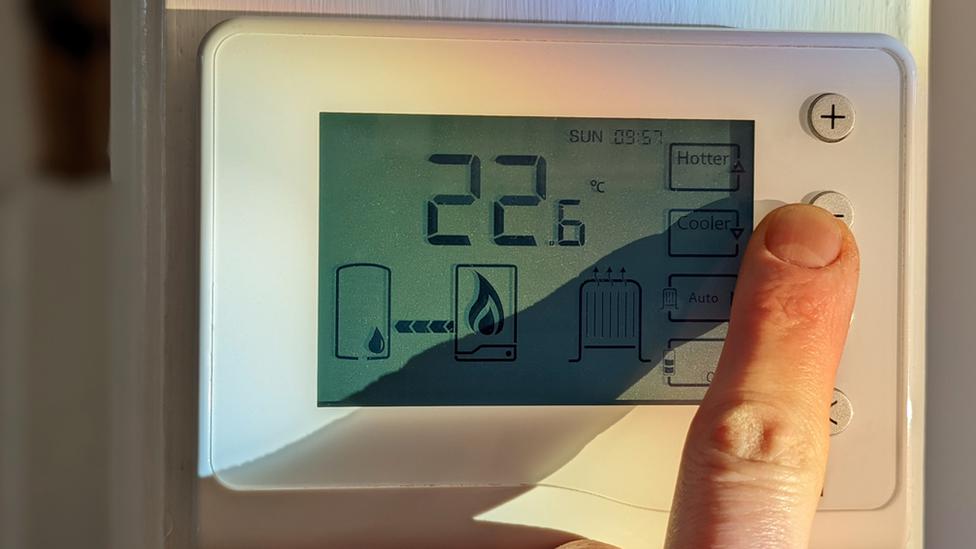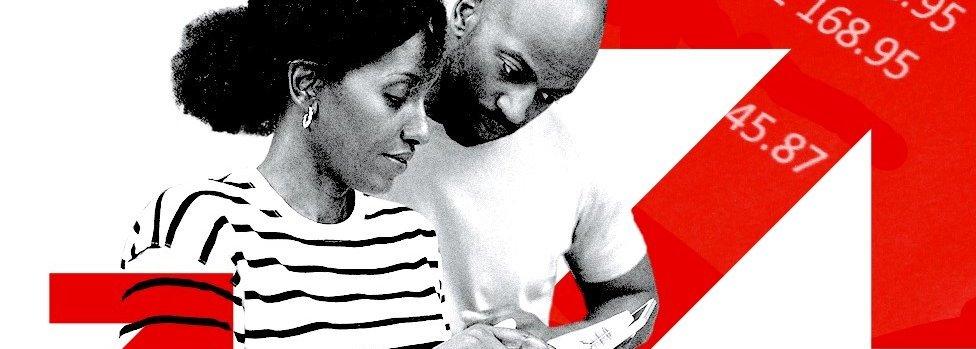Grant Shapps 'sympathetic' to scrapping energy bill rise
- Published

The energy secretary says he is "very sympathetic" to suggestions that the government should stop a planned £500 rise in annual energy bills from April.
Grant Shapps said he was working "hard" with Chancellor Jeremy Hunt on the issue.
There are warnings that a million more households could struggle if bills go up again.
The government is limiting the typical annual energy bill to £2,500, but this will increase to £3,000 from 1 April.
The Treasury has so far resisted calls to extend the scheme at current levels.
However, the cost of delivering the Energy Price Guarantee (EPG) has fallen sharply in recent months because wholesale gas prices have decreased, putting pressure on Mr Hunt to change course.
A growing number of experts believe the chancellor could use the Budget on 15 March to scrap the increase.
National Energy Action estimates that 1.5 million more households will go into fuel poverty as a result of bill increases currently planned for April. That typically means having to spend more than 10% of their income on energy.
Mr Shapps told The Times newspaper, external: "I completely recognise the argument over keeping that price guarantee in place, and the chancellor and I are working very hard on it.
"I'm very sympathetic to making sure that we protect [people]. We're looking at this very, very carefully."

Tackling It Together


Without the government's Energy Price Guarantee, a typical household gas and electricity bill would have hit £4,279 a year from January under the energy price cap which is set by Ofgem, the industry regulator.
In normal times, the cap limits the amount suppliers can charge per unit of energy.
The price cap will fall to £3,280 a year from April, according to Ofgem, and most analysts expect it to go below £2,500 from July, at which point the government would no longer need to subsidise households.
In theory, this means the government would only have to maintain the Energy Price Guarantee at current levels for the three months from April until July. But Mr Hunt has said it lacks the financial "headroom" to do so.
However, the IFS think tank believes the Treasury could afford the estimated £2.7bn cost as government borrowing has been lower than expected this year.
Confusion
IFS director Paul Johnson said it would be a "very straightforward thing for them to do" and politically beneficial.
Consumer finance expert Martin Lewis said he believed the government was more likely to cancel the planned rise than go through with it.
And Torsten Bell of the Resolution Foundation think tank - which is focused on people on low and middle incomes - estimated there was only a 10% chance the Energy Price Guarantee would be changed in April.
Any late decision by the government could cause some confusion for billpayers, however.
Energy suppliers must notify their customers of price increases at least a month in advance of the rise.
A less generous price guarantee would mean prices going up at the start of April, and therefore companies writing to, or emailing, their customers this week.
Any subsequent decision by ministers to keep the scheme at its current level would mean suppliers having to write a second letter explaining the situation to their customers.
On Monday, Energy UK, which represents suppliers, said: "Falling wholesale costs means the EPG has cost the government a lot less than had been anticipated so we, alongside many charities and consumer groups, are urging them to use this surplus to hold the EPG at £2,500 - and to announce that quickly so it can be incorporated in customer bills in time for April."
- Published27 February 2023

- Published10 February 2023
